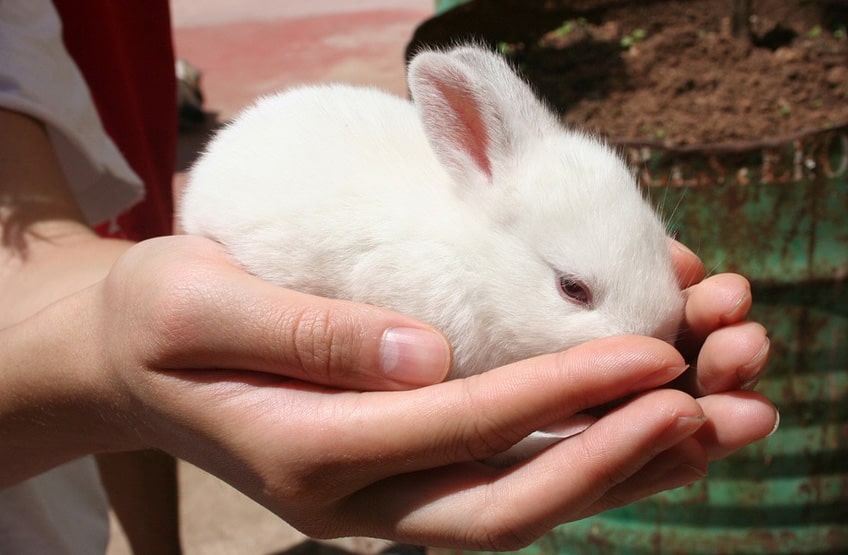
Caring for Baby Rabbits: A Comprehensive Guide
Baby rabbits, also known as kits, are adorable and fragile creatures that require specialized care to thrive. Whether you’re a first-time rabbit owner or an experienced breeder, understanding their unique needs is crucial for their well-being. This comprehensive guide will provide you with all the essential information you need to care for baby rabbits, from birth to weaning and beyond.
Part 1: The Basics of Baby Rabbit Care
1. Nest Box Preparation:
- Provide a cozy and secure nest box for the mother rabbit to give birth in.
- Line the box with soft materials such as hay, shredded paper, or fleece.
- Place the nest box in a quiet and secluded area of the cage or hutch.
2. Birth and Care of Kits:
- Baby rabbits are born blind and hairless, weighing only a few ounces.
- The mother rabbit will nurse her kits frequently, typically every 2-3 hours.
- Avoid handling the kits excessively, as this can stress the mother.
- If the mother is not nursing her kits, you may need to bottle-feed them.
3. Feeding:
- Baby rabbits should be nursed by their mother for the first 4-6 weeks of life.
- If bottle-feeding is necessary, use a specialized kitten milk replacer.
- Feed the kits every 2-3 hours, gradually increasing the amount as they grow.
4. Temperature Regulation:
- Baby rabbits are unable to regulate their own body temperature.
- Keep the nest box warm by providing a heat source, such as a heating pad or a warm water bottle wrapped in a towel.
- Monitor the temperature closely to avoid overheating or chilling.
5. Hygiene:
- Keep the nest box clean and dry to prevent infections.
- Gently wipe the kits’ bottoms with a warm, damp cloth to stimulate urination and defecation.
- Avoid using harsh chemicals or soaps.
Part 2: Growth and Development
1. Weaning:
- Baby rabbits typically start weaning around 4-6 weeks of age.
- Gradually introduce solid foods, such as hay, pellets, and fresh vegetables.
- Continue to offer milk until the kits are fully weaned.
2. Socialization:
- Baby rabbits are social creatures and need to interact with others.
- Handle the kits gently and regularly to socialize them.
- Introduce them to other rabbits gradually to prevent aggression.
3. Litter Training:
- Baby rabbits can be litter trained at around 8-10 weeks of age.
- Place a litter box in the cage and fill it with absorbent material, such as wood shavings or paper pellets.
- Show the kits the litter box and reward them for using it.
4. Health Monitoring:
- Observe the kits closely for any signs of illness, such as lethargy, discharge, or respiratory problems.
- Contact a veterinarian immediately if you notice any concerns.
- Regular veterinary checkups are essential for maintaining the health of baby rabbits.
Part 3: Common Health Issues
1. Coccidiosis:
- A parasitic infection that causes diarrhea and dehydration.
- Symptoms include bloody or watery stools, weight loss, and lethargy.
- Treatment involves anti-parasitic medication.
2. Snuffles:
- A respiratory infection caused by bacteria or viruses.
- Symptoms include sneezing, nasal discharge, and difficulty breathing.
- Treatment involves antibiotics and supportive care.
3. Ear Mites:
- Tiny parasites that live in the ears of rabbits.
- Symptoms include head shaking, scratching at the ears, and crusty discharge.
- Treatment involves topical or oral anti-parasitic medication.
4. Gastrointestinal Stasis:
- A condition where the digestive system slows down or stops.
- Symptoms include lack of appetite, lethargy, and abdominal bloating.
- Treatment involves fluid therapy, pain medication, and dietary changes.
5. Flystrike:
- A life-threatening condition caused by maggots feeding on open wounds.
- Symptoms include foul odor, discharge, and lethargy.
- Treatment involves immediate removal of maggots, wound cleaning, and antibiotics.
Conclusion
Caring for baby rabbits requires patience, attention to detail, and a deep understanding of their unique needs. By following the guidelines outlined in this comprehensive guide, you can provide your baby rabbits with the best possible care and ensure their health and well-being throughout their lives. Remember to consult with a veterinarian regularly for professional advice and support.
